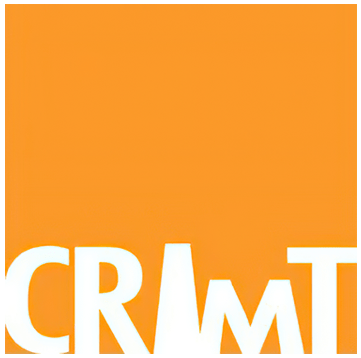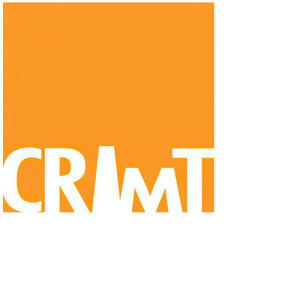CRIMT receives core funding as a Functioning Centre under the Regroupements stratégiques program of the Fonds de recherche du Québec – Société et culture (FRQ). It brings together 53 researchers based in Québec and 135 international collaborators. Its governance structure relies on two research monitoring and advisory committees (the Executive Committee and the Scientific Committee), a set of standing subcommittees, the General Assembly of members, and several participatory forums. Complementing these bodies is a Governance Council, which includes representatives from the administrations of CRIMT’s Québec-based partner universities.
As part of our Partnership Project funded by the Social Sciences and Humanities Research Council of Canada (SSHRC), these bodies interact with an Executive Committee, as well as a Partner board composed of CRIMT researchers in Quebec, in Canada and outside of Canada.
Executive Committee
The day-to-day administration of CRIMT is overseen by an Executive Committee composed of the Director, Co-Directors, and the Centre’s research professionals. This committee is also responsible for the daily management of CRIMT’s Partnership Project and for making recommendations to the Partner board.
The Executive Committee is composed of: Dalia Gesualdi-Fecteau (Director of CRIMT, Université de Montréal), François Bolduc (Université Laval), Christian Lévesque (HEC Montréal), Julie Garneau (Université du Québec en Outaouais), Nicolas Roby (Université de Montréal), Francine Jacques (Université Laval), Soledad Cardona Maldonado (Université de Montréal), and Geneviève Richard (Université de Montréal).
Scientific Committee
CRIMT also benefits from the guidance of a Scientific Committee, which contributes—consistent with the Centre’s mission—to the development of research projects and scientific activities. This committee fosters the emergence of a diversified leadership that is representative of CRIMT’s constituent units across Québec. The Steering Committee is composed of the members of the Executive Committee together with the coordinators of the Centre’s four research axes.
In addition to the members of the Executive Committee (mentioned above), the Steering Committee brings together the following: for Axis 1 – Organizational Policies and Practices, Mathieu Dupuis (Université Laval) and Isabelle Martin (Université de Montréal); for Axis 2 – State Policies and Practices, Geneviève Baril-Gingras (Université Laval), Lucie Lamarche (UQAM) and Lucie Morissette (HEC Montréal); for Axis 3 – Collective Action, Representation and Negotiation, Patrice Jalette (Université de Montréal), Mélanie Laroche (Université de Montréal) and Vincent Pasquier (HEC Montréal); and for Axis 4 – Regional, Sectoral and Transnational Governance, Pier-Luc Bilodeau (Université Laval) and Ian MacDonald (Université de Montréal).
Standing Committees
Members of the Executive and Scientific Committees benefit from the support of permanent standing committees in charge of specific mandates – which they carry out in interaction with the governance structure of the CRIMT Partnership Project.
International Scientific Committee
The International Scientific Committee is composed of experts who are independent of CRIMT’s governance structure. Its mandate is to advise the Centre on its strategic plan, the achievement of its research objectives and the development of its Partnership Project. Gerhard Bosch, retired professor at the Universität Duisburg-Essen, currently chairs this Committee.
Stakeholder Committee
The Stakeholder Committee is made up of representatives of parties who contribute or call upon CRIMT’s research. Its specific mandate is to make recommendations to CRIMT’s governance structure regarding the transfer and mobilization of knowledge and research results. The Committee is currently chaired by Roger Lecourt, former Deputy Minister of Labour of the Government of Quebec and consultant to the International Labour Office.
Equity, Diversity and Inclusion Committee
The mandate of this CRIMT Committee is to advise CRIMT’s governance structure and its Partnership Project on all aspects related to the implementation and application of measures to increase equity, diversity and inclusion in the Centre’s research activities and daily life. Charlotte Yates, President of the University of Guelph, currently chairs this Committee.
Graduate Student Consortium Coordinating Committee
The Graduate Student Consortium Coordinating Committee acts as a liaison between the governance structure and the student members, and is also responsible for the organization of at least two activities per annual cycle: one Doctoral Day and one Doctoral School. Since the Covid-19 pandemic forced the redeployment of these online activities, the committee has also been leading a series of methodological workshops on the CRIMT Teams platform since the spring of 2020. Its current members are : Rock Brière (Université de Montréal), Valérie Janssen (Université Laval), Alexandre Jetté (Université de Montréal), Jean-Philippe Paradis (Université Laval), Birhan Suadik (Queen’s University), Sumati Thusoo (Rutgers University) & Jordan Wilson (Université de Montréal).
Student Program Funding Committee
Within the framework of the CRIMT Partnership Project, the Student Program Funding Committee is responsible for the design of funding programs, as well as the awarding of scholarship and mobility funds to the Centre’s students. Independent from other governance structures, it meets twice a year under the chairmanship of the Scientific Coordinator. Its current members are : Marie-Pier Bernard Pelletier (TÉLUQ), Clémentine Colmont (UCLouvain), as a representative of the students affairs coordinating committee, Sara Perez-Lauzon (HEC Montréal), Nicolas Roby (Université de Montréal) and Charles Tremblay-Potvin (Université Laval).
Institutional Experimentation Methodology Committee
The Institutional Experimentation Methodology Committee looks into the comparative aspects and the parameters for the elaboration of cases of experimentation. The members of the Steering Committee, as well as of the Regulatory Arena Research Coordinating Committee, contribute, on an ad hoc basis, to the work of this committee.
Knowledge Transfer and Dissemination Committee
The mandate of the Knowledge Transfer and Dissemination Committee is threefold: first, to advise CRIMT’s governance structure on the creation of the Virtual Observatory on Institutional Experimentation, which will become the public face for cases of experimentation produced as part of the Partnership Project; second, to provide suggestions – in conjunction with the Stakeholder Committee – on how to engage stakeholders and the public; third, to organize open forums that can reach both labour market stakeholders and a broader public. The members of the Steering Committee, as well as of the Regulatory Arena Research Coordinating Committee, contribute, on an ad hoc basis, to the work of this committee.
General Assembly
CRIMT has a General Assembly made up of the 53 co-researchers who are CRIMT members in Quebec (as a Strategic Cluster funded by the Fonds de recherche du Québec – Volet Société et culture).
Participative Forums
CRIMT has four types of participative forums. First, there are working groups and committees responsible to develop the case template, organize scientific activities or publish volumes and thematic issues of journals. Second, open forums are held, such as international symposiums and seminars. Thirdly, a doctoral consortium, which meets twice a year on the occasion of the Doctoral School and Doctoral Days. Lastly, public forums, known as ‘Outreach activities’, which bring together academics and stakeholders from the world of work.


